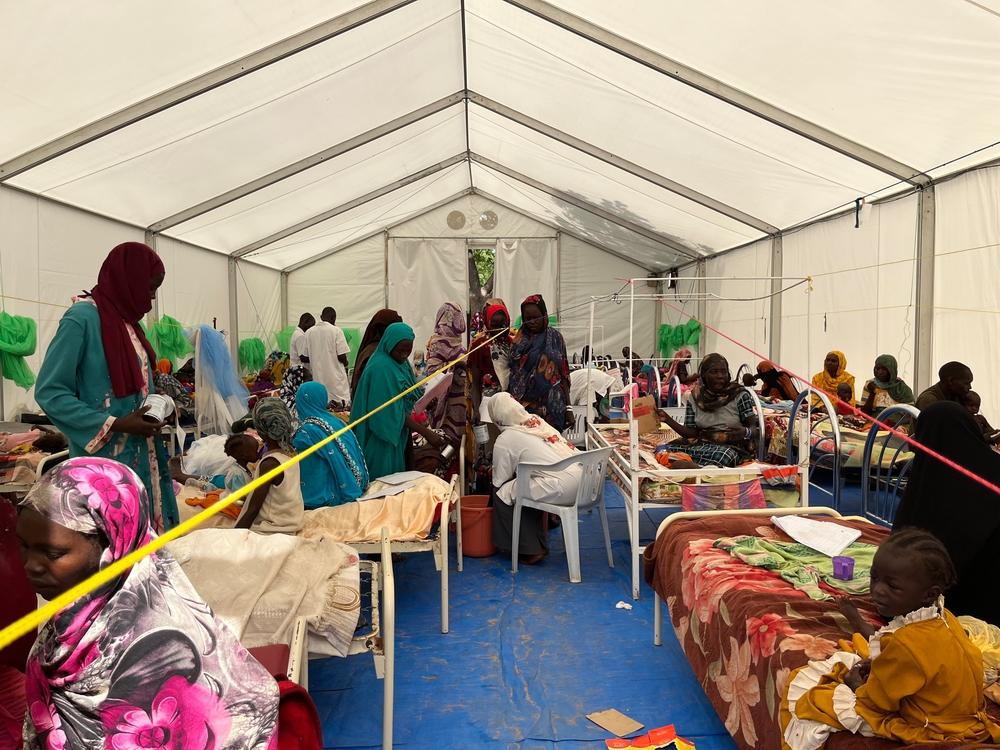The small town of Adré, close to the Chad-Sudan border, is currently home to around 130,000 refugees who have recently fled the violence in Sudan, according to the latest figures from the authorities and the United Nations High Commissioner for Refugees (UNHCR). Our teams have noticed that the majority are women and children.
This sudden population increase in an area already affected by limited access to healthcare, water and food security has led to a sharp rise in medical needs, particularly in paediatrics and nutritional care.
Last week, up to 286 children were taken care of in the wards of the Adré paediatric hospital where MSF teams work - by comparison, around fifty children were being treated at the same time last year.
Many of these young patients come from the town's main transit site around a secondary school. They suffer from measles, acute malnutrition, and other associated illnesses. With the onset of the rains, the number of children affected by malaria is also expected to rise in the coming weeks.
The severity of their health condition when they reach our inpatient services reveals the dire need for medical action outside the hospital walls – it’s urgent to extend access to early detection and treatment of malnutrition and the main diseases at the level of health centres, communities, and refugee camps, before life-threatening complications develop. Setting up measles vaccination at border entry points could also help to reverse the epidemic trend.
In addition to our work at Adré hospital, MSF teams are continuing to support four health centres in the district, working alongside the Chadian Ministry of Health on vaccination and other activities. From 30 June to 5 July, and from 10 to 16 July, we helped the local health authorities to vaccinate 44,000 children against measles at the main transit site in Adré. In all, almost 85,000 children have been vaccinated against measles since mid-April as part of our emergency response in the Ouaddaï province.
Every year, the months between July and September represent one of the most critical periods for young children in the region, as they face the agricultural lean season, the rainy season which brings increased transmission of malaria, and now a measles epidemic. With more than 200,000 new refugees across the Ouaddaï, a major humanitarian response is needed to help the most vulnerable young children, whether Chadian or refugee, to get through this period, with a particular focus on building capacity for early detection and treatment of the main diseases.
